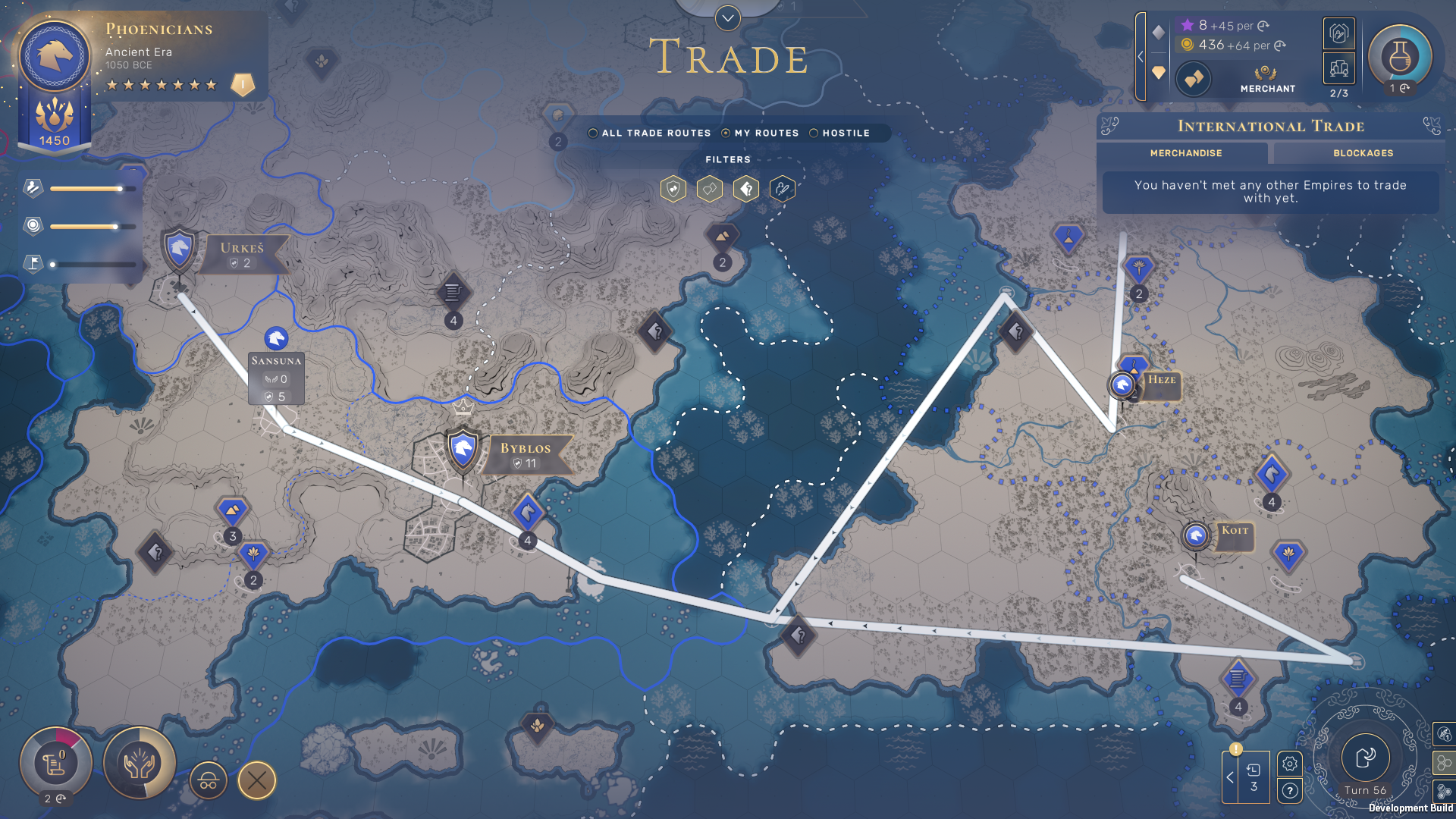After last week’s look at how naval battles will change in the next update, it’s time we turn our attention to how we will handle strategic and luxury resources in the next update, and touch on some of the changes that should make control of the oceans more appealing.
 | Resource Deposits: Riches of the Land Before we delve into how strategic and luxury resources will work in the next update, we need to say a few words about what they won’t be: a stockpile-based system. We know many of you were hoping that we could switch to a system in which you produce and consume resources every turn and your stockpile changes accordingly, with consequences for running out, but changing from the current access-based system to a stock-based system would be such a fundamental change that it would have taken too much of our attention away from other tasks. So, if we are not switching to stockpiles, then how are we handling resources in the upcoming patch? While we are sticking with an access-based system of strategic and luxury resources, we are aiming to increase its granularity and diminish the effect an abundance or scarcity of any given resource will have on your economy. To that end, resource deposits on the map will now usually yield more than one copy of each resource. This not only generates some variation in the (strategic) value of different deposits, it also allows us to add some effects that increase the yield of deposits so you can improve your economy without exploiting new deposits. The higher number of resources in your economy also ties into some changes to the trade system that we will discuss next week. |
Strategic Resource Requirements: Supply and Demand
Of course, with easier access to strategic resources from horses and copper all the way to oil and uranium, we’ve had to increase the resource requirements of units and infrastructures. Won’t that just leave us at square one, though, where you are just a single copy of a resource short of building that cool Emblematic Unit you just unlocked? That’s why we are also changing the resource requirement system: Now a single copy of each of the required resources will be enough to unlock construction, but falling short of the requirement will make it inefficient as each missing copy increases the industry cost.
Luxury Resources: People-pleaser
There’s been no shortage of feedback about luxury resources since the game’s release. Some people found that access to luxury resources made stability both trivial and volatile, as it was as easy to gain massive stability bonuses as it was to lose them. Others found that an abundance of a few select resources could catapult their economy to new heights. The general consensus was that luxury resources in Humankind were very, very powerful.
Obviously, leaving them untouched as we increase the number of copies of each luxury was a no-go, but even tweaking their power might not suffice.
To rein in the growth spike an abundance of any specific resource can give you, but maintain resources as a valuable goal for expansion, trade, or even conquest, we have split the effects of luxury resources into three categories:
- The diversification effect: This effect is earned with the first copy of a luxury resource you have access to and does not stack. Generally, this bonus will offer a moderate boost to Food, Industry, Money, or Science, as well as a stability bonus to your cities.
- The cumulative effect: This bonus stacks per copy of the luxury resource you have access to, but only offers a smaller boost to FIMS than the diversification effect does.
- The wondrous effect: Earned by controlling the luxury manufactory of a resource, this effect is a stacking percentage bonus to the appropriate FIMS yield.
Of course, the “manufactured” resources like Weapons or Pharmaceuticals do not have Wondrous Effects and do not necessarily follow the pattern outlined above.
Internal Trade: Shipping and Handling
So, how do you take advantage of these new resource effects?
The first step hasn’t changed much: You still build a resource extractor on a deposit in your territory, even if you can later upgrade its yields with infrastructure. However, this extractor no longer supplies your entire empire directly. Instead, all your resources must first be taken to your capital by way of domestic trade routes, from the extractor to its administrative center and then territory by territory to the city center of your capital.

All goods flow to Byblos
Resources will only affect your empire if this path can be traced without interruption, so you might lose the benefits of faraway resources without losing control of the deposits, especially if they have to cross neutral or foreign territory. Since many ocean regions cannot be claimed, resources found outside your home continent are particularly vulnerable to poaching.
Hang on a minute...
Poaching?
Well, you’ll just have to come back next week to learn about that.


















.png)









































































































